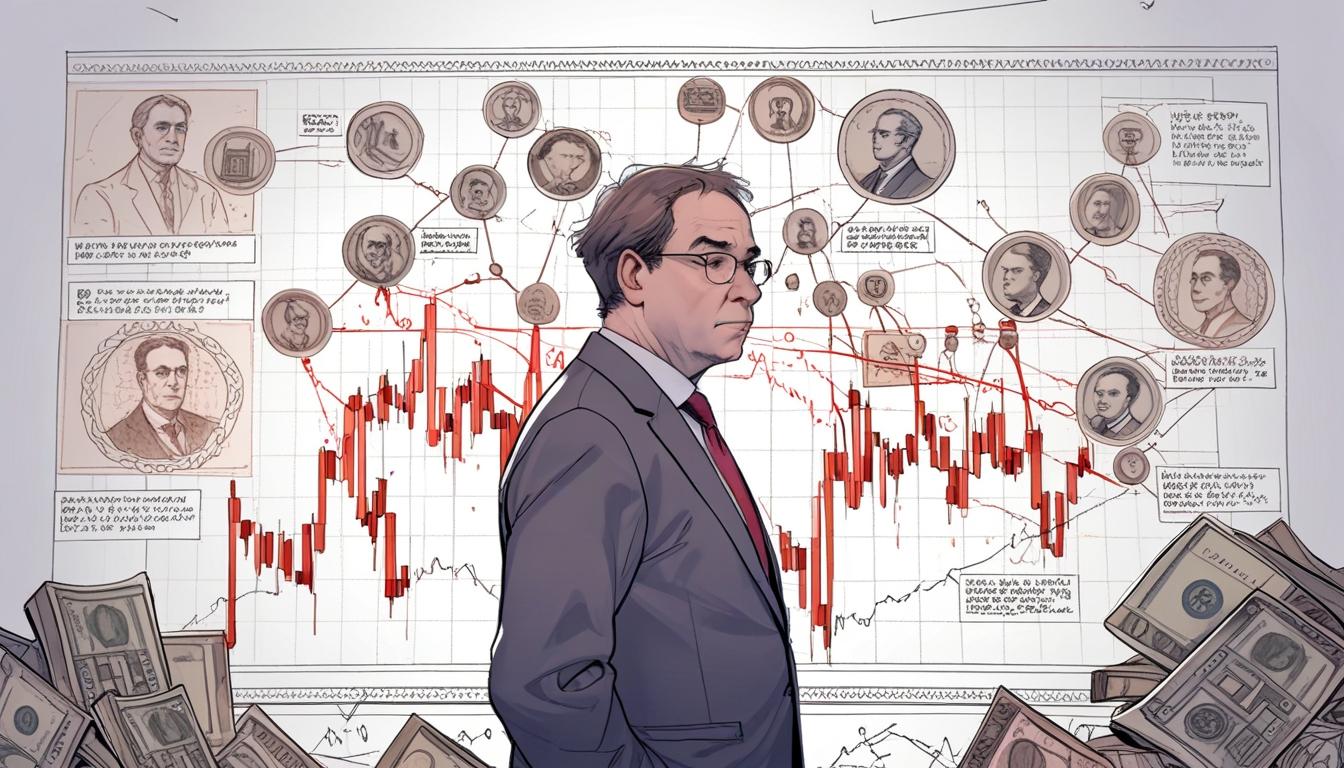Bank of England Governor Andrew Bailey has expressed significant concern about the impact of global trade tensions on the UK’s economic growth, amid growing investor speculation that the central bank will cut interest rates twice in the coming months.
Speaking at an event in Washington during the International Monetary Fund’s spring meetings, Bailey emphasised the risk posed by ongoing trade disputes, particularly those instigated by US tariffs. “The Bank must take very seriously the risk to growth from Donald Trump’s trade wars,” he said, highlighting the Bank of England’s attentiveness to the wider global economic environment. Bailey noted that the UK’s status as an open economy requires consideration not only of tariffs directly affecting the UK but also the broader impact on global economic growth.
Investors are currently betting on a sequence of interest rate reductions, with financial markets pricing in two cuts by June. This would see the official Bank of England base rate fall from 4.5 per cent to 4 per cent in just eight weeks, with the possibility of further reductions to 3.5 per cent by the end of the year. Such cuts would offer relief to households and businesses through cheaper borrowing costs amid economic uncertainty.
Economic data has underscored these concerns. S&P Global’s latest index of activity for British companies fell sharply to 48.2 in April, down from 51.5 in March, marking its lowest point since November 2022. As the index remains below the 50 threshold, it indicates contraction rather than growth in the sector.
Chris Williamson, chief business economist at S&P Global, commented on the data, saying, “The collapse in confidence and drop in output during April raise red flags as to the near-term economic outlook and add pressure on the Bank to reduce interest rates again.”
The report also revealed that exports declined significantly, marking the biggest contraction since May 2020, largely attributed to the impact of newly imposed US tariffs following what President Trump termed ‘liberation day’. At the same time, businesses faced elevated costs, rising at the fastest pace in over two years. This increase is partly due to the UK government’s National Insurance tax hike of £25 billion and an increase in the minimum wage initiated under the Labour Party’s policies.
Additionally, the S&P Global report warned of “aggressive” job cuts across sectors as companies respond to these economic pressures.
The combination of these factors—the trade war implications, higher domestic taxes, growing business expenses, and faltering export performance—has created a backdrop of economic uncertainty. The Bank of England’s forthcoming decision on interest rates, scheduled for mid-May, will be closely watched as policymakers weigh these challenges.
Source: Noah Wire Services
